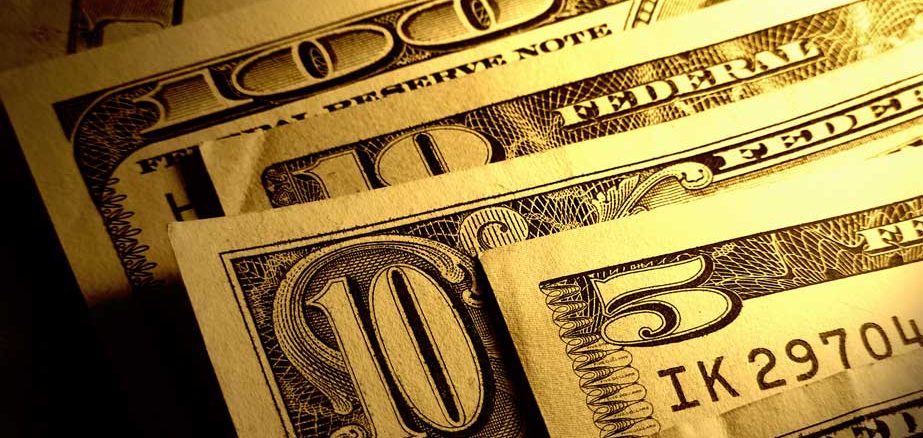
While the United States is still the global economic superpower, its self-belief that it still retains the status at the top of the capitalist heap is under threat, particularly in the eyes of the rest of the world as you will see in this posting.
Thanks to the Pew Research Center, we can see how significant the changes in the global economy have become over the past decade and a half, especially since China was admitted to the World Trade Organization on December 11, 2001. Let’s look at the data first. Here is a graphic showing what has happened to China’s GDP since the beginning of 2002:
Here is the year-over-year growth of the Chinese economy over the same time period (in red) compared to that of the United States (in blue):
The difference in the growth rate of the two economies is extremely significant over the past decade and a half with China’s economy showing year-over-year growth rate over the fifteen year period averaging 15.9 percent compared to 3.9 percent for the United States.
Now, let’s look at how the world views the two economic superpowers. Pew polled the public from 38 nations in its Spring 2017 Global Attitudes Survey and found that a median of 42 percent of respondents felt that the United States was the world’s leading economy compared to 32 percent for China, noting that the other options which included the European Union and Japan received far lower. That perception varies widely by region as shown on this map which outlines the nations which believe that the United States is leading in blue and those which believe that China is leading in red:
Interestingly, in seven out of ten European Union nations in the study, China is considered to be the global economic leader. This is part of a trend that began during the Great Recession when Europeans increasingly believed that China was the world’s most powerful economy. Australia, a nation whose major trading partner is China but which has strong ties its long-term ally, the United States, also believes that China is the world’s strongest economy by a 58 percent to 29 percent margin.
Here is a graphic showing the breakdown of how the public in each of the 38 nations polled feels about which nation is the world’s economic leader:
In 24 of the 38 nations polled, the public feels that the United States is the world’s economic leader whereas in 12 nations, China is seen as the world’s economic leader, double the nations that saw China as the leader when the same question was asked between the years 2014 and 2016. On a year-over-year basis, there have been some significant changes:
1.) United Kingdom:
– China – 35 percent in 2016, 46 percent in 2017
– United States – 43 percent in 2016, 31 percent in 2017
2.) Germany:
– China – 30 percent in 2016, 41 percent in 2017
– United States – 34 percent in 2016, 24 percent in 2017
3.) Canada:
– China – 42 percent in 2016, 42 percent in 2017
– United States – 40 percent in 2016, 32 percent in 2017
4.) Mexico:
– China – 17 percent in 2015, 25 percent in 2017
– United States – 60 percent in 2015, 47 percent in 2017
What I found most interesting was the year-over-year changes in the perception of the United States economic leadership from America’s geographically closest trade partners, Canada and the United States. One wonders how much of this change in perception is due to the Trump Administration’s threats to kill the decades-old NAFTA trade deal.
As we know, in the global economy, perception quite often becomes reality. This poll by Pew shows us that the United States reputation as the global economic superpower is under threat from China. While the current administration in Washington is doing its best to rewrite trade deals to protect its own economic power base, it may find out that reneging on trade deals that have existed for decades hurts the perception of the United States as a world leader more than it benefits America as trade instability rises.
Click HERE to view more.
You can publish this article on your website as long as you provide a link back to this page.

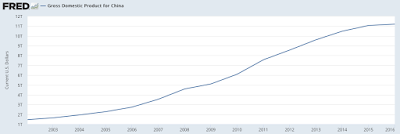
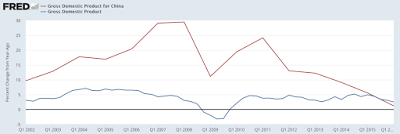
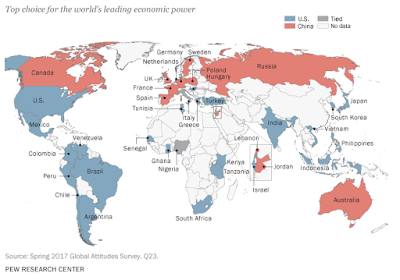
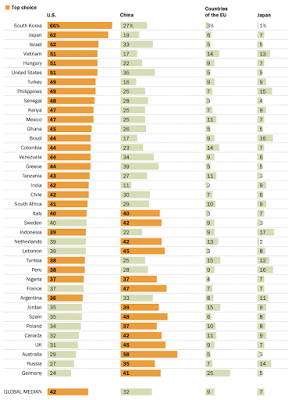
Be the first to comment